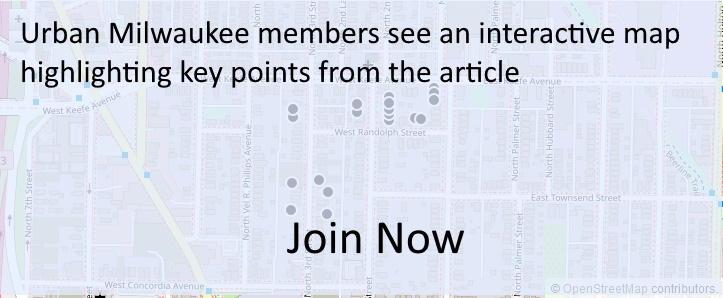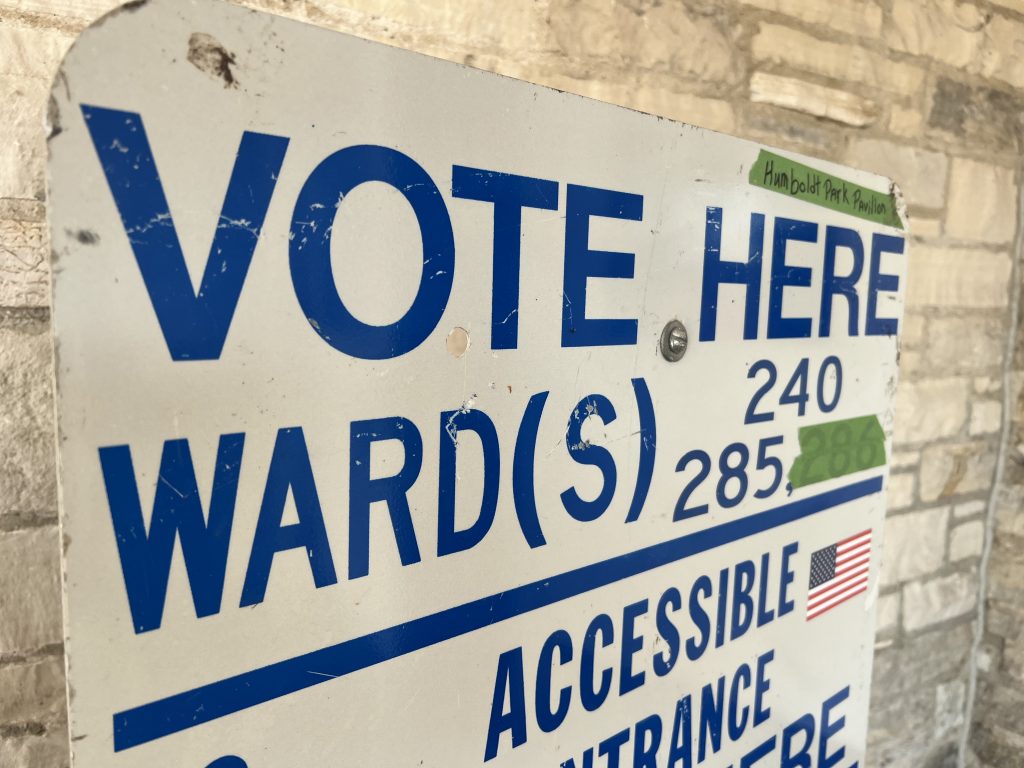Ballot Shortages Mar An Otherwise Strong Night For Milwaukee Elections
At least seven polling sites had to call for urgent ballot printing.
Sometimes you don’t want to be the main character.
That’s invariably true for the thousands of people who dutifully administer Milwaukee’s elections under a microscope. And on Tuesday, they almost avoided the spotlight.
Despite nearly 15,000 more absentee ballots being cast than in the comparable spring 2023 election, the Milwaukee Election Commission was able to deliver its results to Milwaukee County almost an hour ahead of Executive Director Paulina Gutiérrez‘s midnight estimate. The top of the ticket statewide races were both called before the city could report its results, shifting the limelight away from the city and toward Elon Musk and President Donald Trump.
But ballot shortages at at least seven polling places left a blemish on the city’s night.
Gutiérrez attributed the issue to “historic turnout in the spring election, which has never occurred here in the city.”
Speaking at a series of press conferences throughout the evening, Gutiérrez said the city had prepared for the surge after noting interest growing in the week before the election. “We started to up our orders. We did two supplemental orders and started generating ballots early. We were still getting pretty unprecedented numbers.”
The city’s unofficial results show 153,171 people voted in the spring election. That’s up from 112,815 in April 2023, a similar election, but still below the April 2016 presidential primary spring election when 167,765 ballots were cast. Last November, 249,007 people voted.
Gutiérrez said the city would normally expect to see 20-to-40% turnout of registered voters. But it began planning for spikes to 65% given the national attention on the Supreme Court race. “I’m assuming there are going to be places that were even higher than that,” she said. The final citywide average was 49.5%, but 25 of the 356 wards had more than 70% turnout
Not every polling place gets the same number of ballots. “We work towards using previous elections, we do busy locations, registered voter turnout, college and universities we usually focus on election-day registrations. For a spring election of this type, we target a 40-to-50% turnout and we saw a lot higher than that this election,” said Gutiérrez. A standard formula is not used.
All of the publicly identified locations that experienced shortages were on the city’s north side and not in traditionally high turnout areas. The seven locations that MEC said experienced shortages, each of which includes multiple wards, were Lancaster School, Milwaukee German Immersion School, Milwaukee Sign Language School, Parkview School, Indigenous People’s Park, Fifty-Third Street School and Ninety-Fifth Street School. Some of the wards that saw turnout in excess of 70% are located near those polling locations, but polling places associated with two wards on the southeast side that saw greater than 80% turnout were not included in the list.
“The reason we had ballot shortages is because turnout was huge,” she said after the city submitted its results. “We communicated to all of our chiefs, as long as someone was there in line at 8 o’clock, their vote was going to count.” It was a message that Gutiérrez and other city officials repeatedly stated once the issue became publicly known. “We’ll do better and we do better every election.”
In response to the issue, Gutiérrez said the city expanded its team of 15 couriers, election workers whose function is to move supplies between the city’s 180 polling places, to 25 to address the issue more quickly.
MEC relies on “specialized ballot printers” to print the ballots, she said, and began printing more ballots as needed. It also used special machines that voters might be familiar with from early voting.
The city’s ExpressVote machines first render a digital ballot on a touchscreen computer and then print a paper copy. The city uses them for early voting because voters can go to any polling place, and the digital-first machines avoid the need to store all the various paper ballot configurations at each site. On election day, the machines are sent to polling places to accommodate voters with accessibility needs.
Gutiérrez said the ExpressVote machines were used at some sites to help address the ballot shortages. Multiple poll workers also told Urban Milwaukee that they were used in a pinch. The machine is slower to use than issuing and filling out a traditional paper ballot.
At multiple points, the director was quick to praise the city’s part-time election workers. “It’s pretty amazing. It makes me proud to be a Milwaukeean,” said the election director. “Our team worked really hard… this couldn’t happen without the Milwaukeeans that were committed to working long hours. I’m very appreciative of that.”
And though the issue seemed to be largely forgotten, given the quick determination of who won the various elections, one Common Council member resurfaced the issue during Wednesday’s council meeting.
“Thank you to those that set out and beared with us as we dealt with a lot of technical issues, issues that honestly shouldn’t have happened and I want to send a sincere apology on behalf of the City of Milwaukee Common Council,” said Alderman Mark Chambers, Jr. He thanked individuals who didn’t leave polling places when an issue occurred.
Despite the ballot shortage issue, Republicans didn’t rush to the city’s Central Count site to object. A machine lockout issue, and subsequent delay, during the November 2024 election triggered U.S. Senator Ron Johnson to visit and call the operation “unbelievably sloppy.”

Existing members must be signed in to see the interactive map. Sign in.
If you think stories like this are important, become a member of Urban Milwaukee and help support real, independent journalism. Plus you get some cool added benefits.






















Add Carver Elementary to the list of polling places that ran out of ballots.
There was one other.
In defense of the election commission, no one could confidently predict this election, including the turnout.
I heard many Democrats moan that they were worried the turnout would be nowhere near what it was in 2023.
Boy, were they wrong. I think many people were so pissed at Trumpa and Musk they took it out on Schimel. Not a good time to run as a conservative.